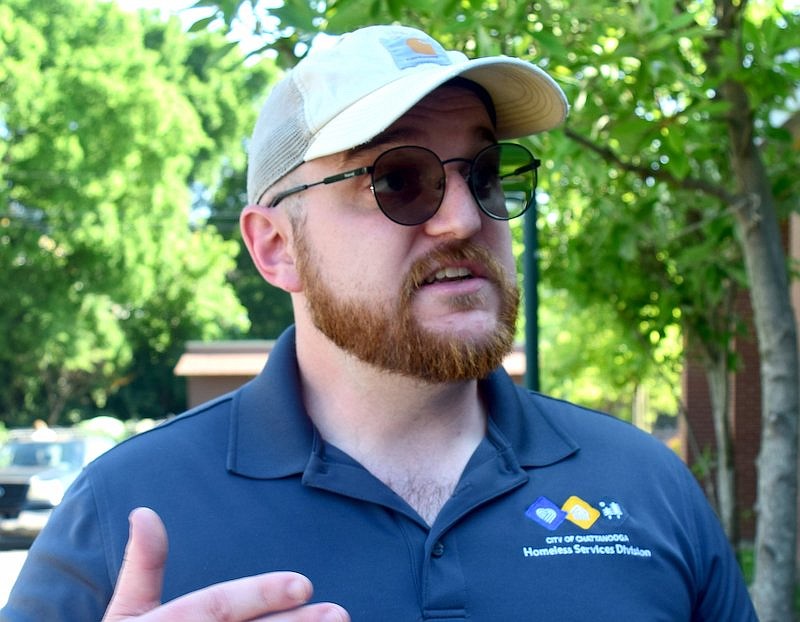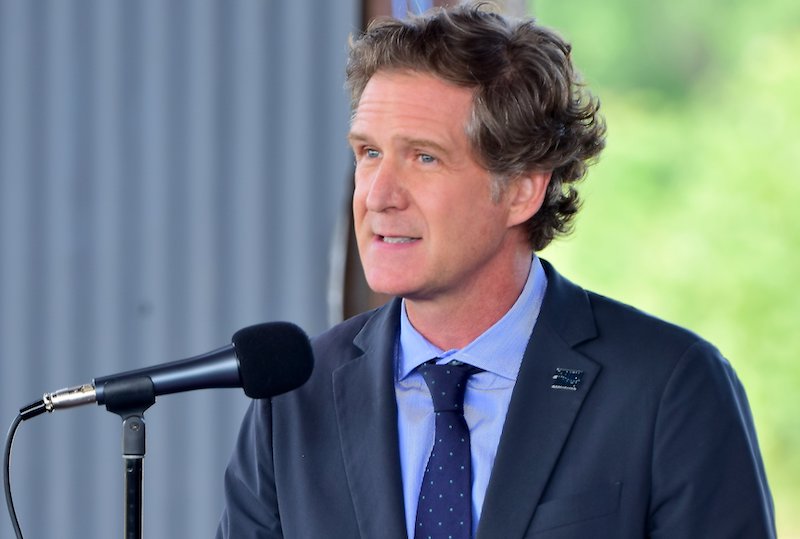Chattanooga city government may use a few million dollars in federal funding to establish a shelter to serve the homeless, including those turned away at other facilities.
Chattanooga Mayor Tim Kelly recently shared an outline of how he hopes to use $30 million in federal money received from the American Rescue Plan Act.
The full proposal will require approval from the Chattanooga City Council, but it includes $2.8 million for the construction of the new shelter, which would fill a need local advocates say the city municipality lacks.
"Shelter isn't the solution to homelessness. Housing is - housing with support services - but this is something that we've heard from our partners," Sam Wolfe, the director of the city's Office of Homelessness and Supportive Housing, told the Chattanooga Times Free Press in a phone interview. Wolfe said there are at least 700 people sleeping on the streets in Hamilton County on any given night,
Wolfe said the No. 1 need service providers identify is shelter capacity. He said the city is still deciding how it would operate the proposed shelter, but officials hope to set up a 24-hour facility with fewer obstacles than existing locations in Chattanooga.
That could includes ensuring there are accommodations for people in need of medical assistance or those who have physical disabilities who may require use of a wheelchair. That could also include providing a place for people who are actively battling substance abuse issues and would be turned away from another location.
"There's so much need for shelter capacity," Wolfe said. "We're really not trying to limit the focus of this and say, 'We're only going to serve these people.' It's really something that's going to be utilized by a wide range of people experiencing homelessness, and we're going to try to make it as accommodating and welcoming as we possibly can."
Wolfe said the city is still early in the planning process and doesn't yet have a sense of the total capacity of the planned shelter.
This is a project the previous three mayoral administrations have tried to get off the ground, Wolfe added, but it hasn't yet come to fruition for a variety of reasons. Obstacles included hesitancy to commit funding and difficulty finding a location.
Currently, Wolfe said, the only option for individuals in need of a place to stay is the Chattanooga Rescue Mission. Families with children can stay short-term at the Community Kitchen's MacClellan Family Shelter. There are also other shelters like the Chattanooga Room in the Inn that work with women and children, but there's a referral process that can sometimes cause a delay, Wolfe said.
Additionally, the Community Kitchen manages two overnight shelters in the basements of local churches, but people who stay there need to be in and out by a certain time.
"There's a hodgepodge of shelters like that that do provide some relief, but they don't really go far enough to meet the need in either number or capacity," Community Kitchen CEO Baron King said by phone.
Many existing shelters also enact restrictions that limit entry by certain people, including those with felony records.
King said the Community Kitchen is incredibly enthusiastic about the prospect of the city opening a shelter that has fewer barriers for entry than other shelters.
The number of people living on the street creates a constant strain on health services and the Police Department, he said, and they're frequently more vulnerable to issues like crime or disease.
Creating a low-barrier emergency shelter provides them with the stability to become more self-sufficient, he said. It would also put more people in contact with supportive services.
Wendy Winters, the executive director of the Chattanooga Regional Homeless Coalition, said by phone that there are more options for women and children than for men in Chattanooga.
Although men have historically struggled to find an overnight shelter, Winters said the pandemic and a shortage of affordable housing options has caused the overall number of people living on the street to skyrocket. She anticipates usage of a new facility could be split evenly between men and women.
A 2022 point-in-time count for the 11-county region found homelessness among women jumped 387% compared to the year prior, according to the Chattanooga Regional Homeless Coalition. Overall, the entire Southeast Tennessee region saw a 153% increase in the number of unsheltered homeless, rising from 1,217 to 3,084, the coalition said.
The city has never had a year-round, low-barrier shelter, Winters said.
"It's odd that a city our size doesn't have one," she said. "I think a lot of people just assume that we do, but we don't."
Contact David Floyd at dfloyd@timesfreepress.com or 423-757-6249. Follow him on Twitter @flavid_doyd.

